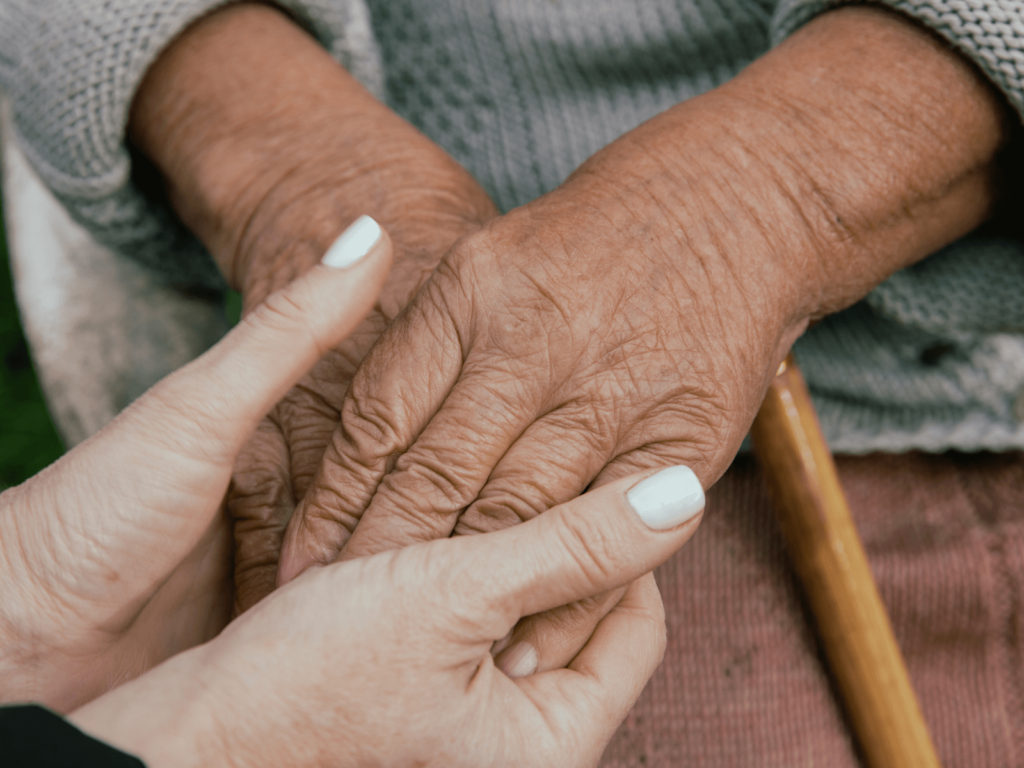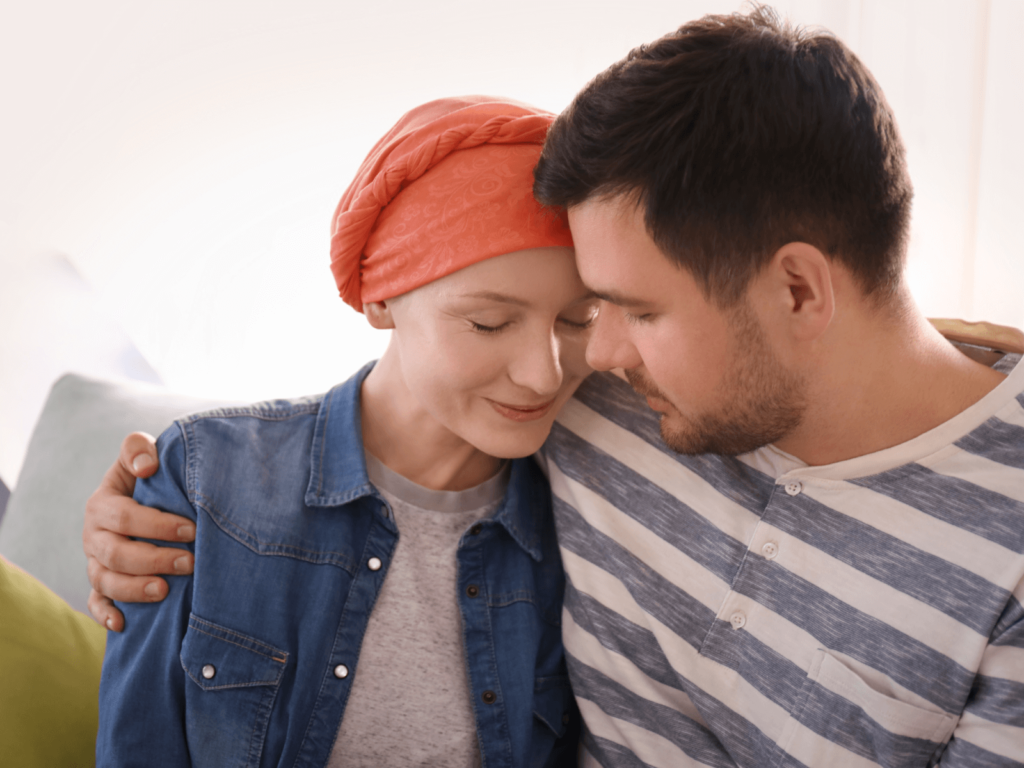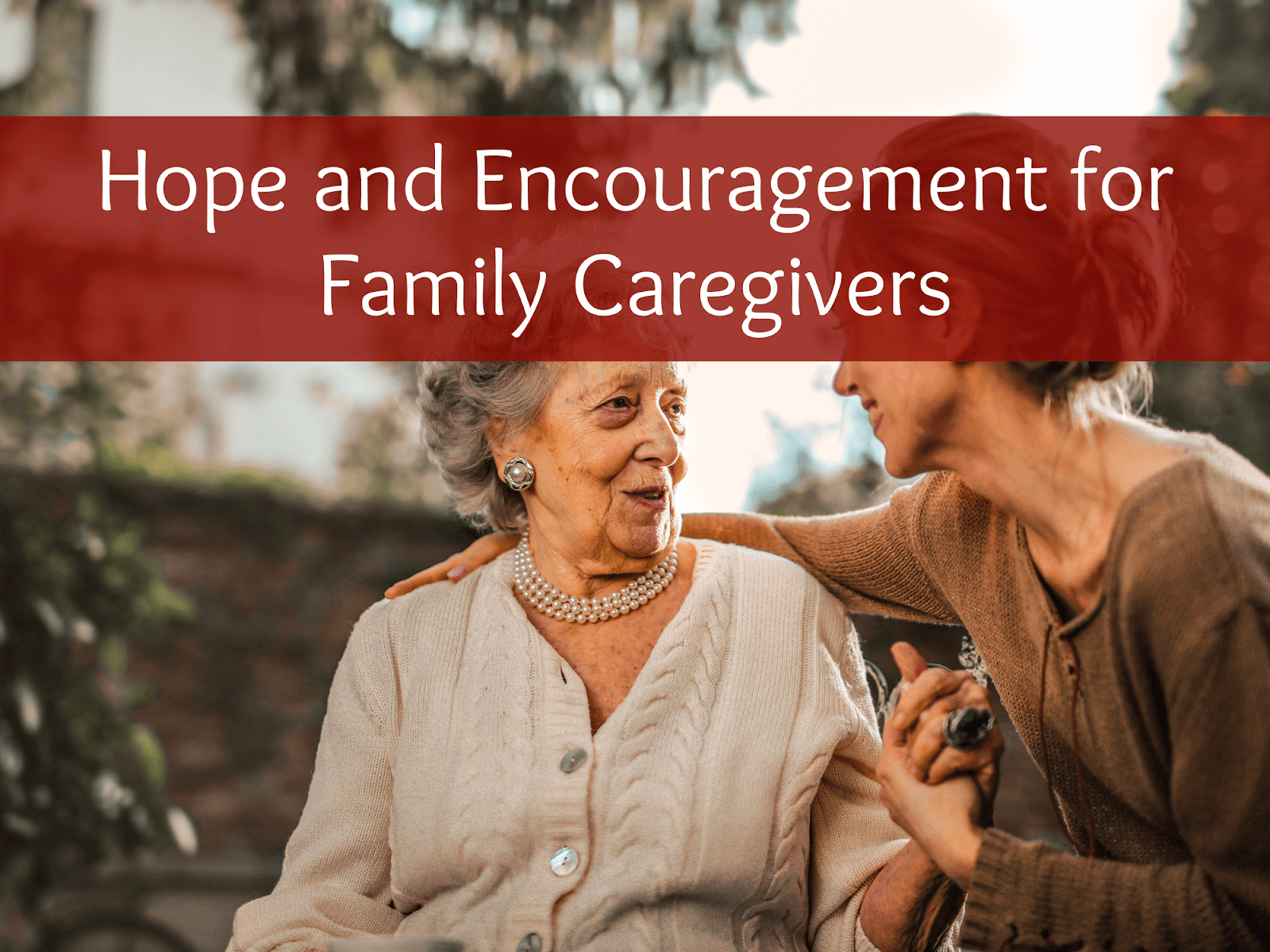November is National Caregivers Month, and we wanted to highlight the heroes who are caregivers. Caring for a family member is no easy task. People are often thrown into this role with no preparation or training. They simply step up to the plate because they have to. It’s a scary position to be in.
Kenosis co-founder, Christine Turo-Shields, has many years of experience with caregivers. She also participated in a video series that provides help and hope for family caregivers. Christine shares her insights on caregiver’s mental health, common struggles, and advice for family caregivers in this article.
Stepping into a Family Caregiver Role
It can be difficult to transition to a caregiver role. To them, they’re just a spouse, daughter, or son. They didn’t sign up for this, and it can be difficult for people to embrace. Christine comments, “I find that many individuals move into it naturally and others out of a sense of duty.” That can create a lot of ambivalence for the person who finds themselves in a caregiving role. They understand the responsibility and duty but feel they have to give up everything to be in this position.
Family caregivers face feelings of guilt for the negative emotions they experience. They may resent being in a caregiving position and feel guilty for feeling that. Christine often talks to clients about these feelings. She shares with them, “Caregiving is the balance between compassion and resentment. Have compassion for your loved one who has, perhaps, a chronic or disabling condition they can’t help. It’s not their fault. And yet, there’s the resentment of, ‘This isn’t what I signed up for. This isn’t what I was expecting. This isn’t the way it was supposed to be.’” Recognizing that emotions ebb and flow permits them to feel those emotions.
Many caregivers feel that they no longer have a “normal”. Their lives are set aside to care for their loved one. Their new normal includes the needs of their loved one, which can bring up many emotions, such as anger, resentment, and bitterness. They need to learn to adjust to their new normal, even if things feel out of control.

Take Care of Yourself First
Have you been on a plane recently and heard the flight attendant say, “Please secure your oxygen mask first before helping others?” This is a powerful sentiment to caregiving. Caregivers need to address their mental health and well-being before caring for someone else. It’s a big responsibility! You cannot adequately care for someone else when you are suffering.
Caring for your mental health is always important, but especially for caregivers. The job is exhausting and stressful. Caregivers can easily succumb to feelings of anxiety and depression. Christine explains, “Oftentimes they find themselves crying at the drop of a hat. They may be more irritable and grouchy themselves. Sleep is often disrupted, which can dovetail into irritability because if you’re exhausted during the day, you can be more cranky with people.”
It can also come in the form of physical ailments. Christine shares, “Oftentimes, caregivers find that they might get an infection, whether it’s an upper respiratory infection or a cold that won’t go away. When your body is worn down, it doesn’t fight as well. It’s not as strong.”

Advice for Caregivers
Caregivers are immensely strong people. They’ve adjusted to a new normal and have made someone else’s life their responsibility. We understand that it can come with challenges, which is why we wanted to share some advice and encouragement for family caregivers.
Processing the Loss
There are layers of loss that go along with the journey of caregiving. Family caregivers will be required to process the loss of what was once their loved one. Your loved one may experience loss of:
- Functioning
- Memory
- Vision
- Independence
Christine shares a client experience: “I had one client who specifically talked about, ‘I had a vision for a 10-year plan with my husband into retirement,’ and now her vision is just simply, ‘We just pray for a quiet day.’”
Processing the grief is a necessary step and ongoing struggle. A caregiver may begin to take over things that their loved one used to do, such as bills, driving, or grocery shopping. They begin to see the erosion of functioning, and that’s very painful to watch and witness for the caregiver.
Second Guessing Decisions
Family caregivers typically don’t have professional training. They step into the role because they have to. They make decisions based on what they think is best for the family, and caregivers can often fall into the trap of second-guessing themselves.
Christine provides some advice: “What’s most important is understanding there’s no right or wrong. It’s what is the next best decision to make. For some, that means trying to maintain their loved one in their home, and others find that they need to bring in extra support. Still, others find they have to consider alternative placement. Again, all those choices will unfold as the situation presents itself.”
You know what’s best for your loved one. Trust yourself and what your gut is telling you.

Asking for Help
Family caregivers can be hesitant to ask for help because of what it says about them. They think people will perceive it as “They aren’t good enough. They are a failure.” This mindset is detrimental to everyone involved and is simply not true. As much as you want to be a superhero for your loved one, even superheroes have sidekicks. It’s okay to ask for help when you need it.
Christine adds, “I also find sometimes people don’t seek services because they believe they’re protecting their loved ones. Caregiving services can be informal where someone comes into the home to take care of your loved one while you go out for a couple of hours. Other times, there’s more formal opportunities to have someone come in and provide respite care.”
You can decide which option is right for your family but know there is help out there for you. Also, try reaching out to other family members or friends. They are there for you; if you need help, don’t be afraid to ask.
Lean on Your Faith
Your belief in a higher power and drawing on that faith can comfort you in the difficult times that come your way. Faith is a journey. When everything else seems stripped away, come back to the higher power that sustains you. This is true for the family caregiver and the loved one.
We have great respect for anyone in a caregiving role. We understand the challenges that come with caring for a loved one. If you or someone you know is struggling in a caregiving role, reach out to us. Kenosis counselors are available to help. You don’t have to go through this alone.

